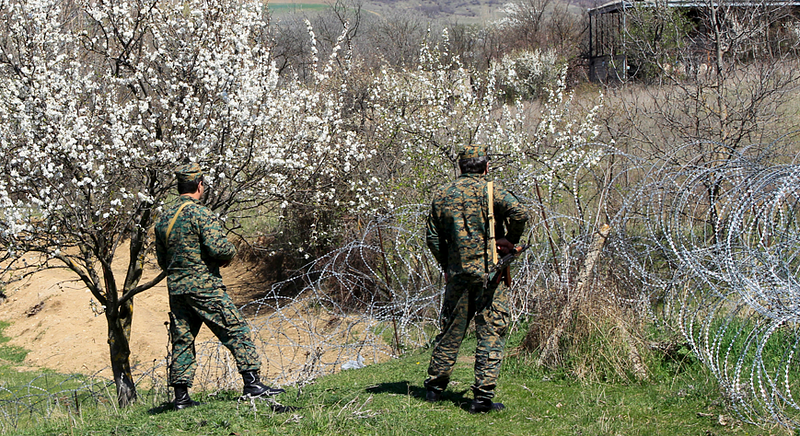Georgia launches a cutting-edge Peace Initiative



Prime Minister of Georgia Giorgi Kvirikashvili has announced a wide-ranging plan ‘to encourage contacts, movement, and relations’ with residents of regions of Georgia — Abkhazia and Tskhinvali. The new initiative of the Georgian government aims to improve the humanitarian situation in the occupied territories, to re-establish trust between Georgian citizens divided by conflict on both sides, and counter the harm of continuous occupation of Georgian territories by its Russian neighbor.
The peace initiative comprises efforts to simplify trade, including from Abkhazia and Tskhinvali/S.Ossetia regions to the EU, and to encourage students from those regions to study at educational institutions in Georgia and abroad. The initiative will also include changes to Georgia’s Law on Occupied Territories.
Major points of the Peace Initiative:
– Enhancing and simplifying trade along the boundary lines through creating new opportunities. Under the initiative, it will be possible to support and encourage individual and joint business initiatives across the administrative boundary lines.
Under the plan, residents of the Abkhazia and Tskhinvali regions will be able to transport locally produced goods to Georgian-controlled territories, with ‘status-neutral labelling’. The plan also includes the creation of ‘Special Economic Spaces’ for people in Abkhazia and South Ossetia in the villages of Rukhi and Ergneti.
– Creating additional opportunities for quality education and simplifying access at every level of education both at home and abroad.
Under the initiative, residents from Abkhazia and Tskhinvali regions would be eligible to attend Georgian educational institutions with their individual ID numbers, and would not need to obtain Georgian citizenship or the ‘status neutral’ documents currently available. Georgia will also simplify the process of recognizing diplomas and other education documents issued in occupied Abkhazia and Tskhinvali regions.
– Forming a mechanism simplifying access to the benefits and goods available to our country resulting from the country’s development, including: European integration, Schengen visa waiver, free trade rights, and others.
According to Ketevan Tsikhelashvili, Georgia’s State Minister for Reconciliation, all the initiatives envision changes in a number of laws, including the Law on Occupied Territories, which Georgia adopted after the August 2008 War. Laws on the Rules of Registration of Georgian Citizens and Foreign Citizens residing in Georgia, Issuance of Personal Identification Card, on Civil Acts, on Entrepreneurship, on Grants, on Higher and General Educations, along with the Tax Code, are also to be amended by the Georgian parliament.
The US Department of State welcomed the Georgian government’s new initiatives as well, noting that ‘The United States welcomes Georgia’s package of proposals to improve the lives of people living in Georgia’s regions of Abkhazia and South Ossetia. These measures help address the needs of the most vulnerable populations on both sides of the Administrative Boundary Lines and provide increased opportunities for mobility, improved livelihoods, and access to education.’
‘The package of proposals adopted today by the Government of Georgia can benefit the citizens living on both sides of the Administrative Boundary Lines by facilitating trade, education and mobility. These proposals are in line with the European Union’s policy of engagement with the breakaway regions of Georgia, which includes several ongoing EU projects. We support initiatives aimed at building bridges across the dividing lines and addressing humanitarian challenges,’ says the statement of the Delegation of the European Union to Georgia.



